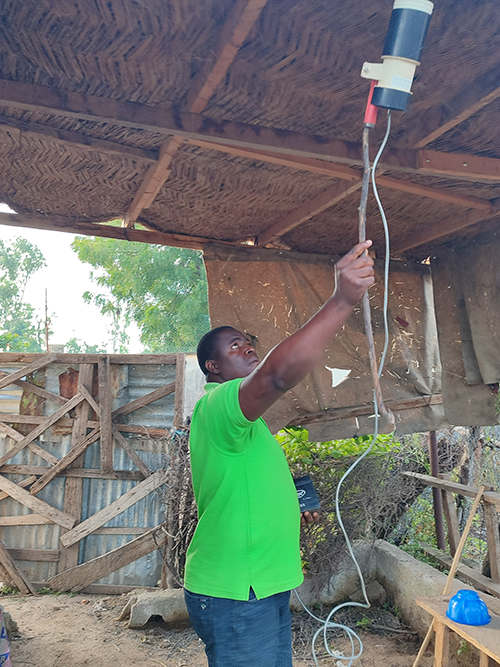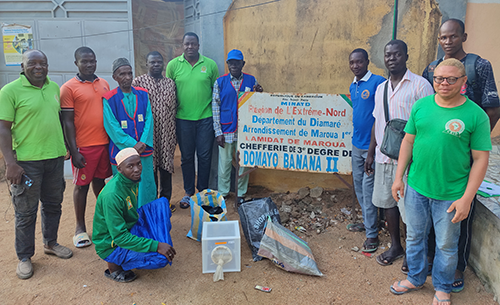
Dr Armel Tedjou collecting Anopheles near livestock shelter, using a prokopack aspirator
This project is funded by the Commonwealth & Development Office (FCDO) under the RAFT consortium directed by Professors Sian Clark and Joe Lines, for £60,000. Launched in January 2024, the project is set to end in July 2025. The Resilience Against Future Threats through Vector Control (RAFT) -RRF2 project aims to: Conduct entomological surveillance and lab analysis to determine their larval habitats and the spatio-temporal distribution of Anopheles stephensi in some selected sites in Cameroon with high potential to be invaded; and Use population genomics methods and tools to determine patterns of Anopheles stephensi invasion and expansion to other countries. The team at the Centre for Research in Infectious Diseases working on the project is made up of: Dr. Armel Tedjou (PI), Dr. Basile Kamgang (Mentor) and Pr. Charles Wondji (Supervisor)
Outputs
Output 1: New evidence generated and synthesised for targeted National Control Programmes to determine the most cost-effective LLIN product and deployment means for a specific geographical area
Output 2: New evidence generated and synthesised on specified development-driven vector-borne disease threats and preparedness, including threats from Aedes and Anopheles stephensi
Output 3: Research outputs are made accessible to, and evidence-informed discussions are facilitated with, targeted National Control Programmes and other identified stakeholders (including non-vector-borne disease specialists) whose decisions impact vector-control
Output 4: Selected researchers and National Control Programme managers receive information and peer-support to improve research, policies and plans for control of development-driven vector-borne diseases.

Entomological team from CRID and Community health workers from the Health district of Maroua 1






